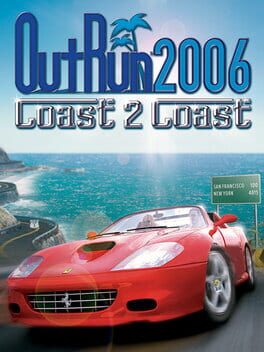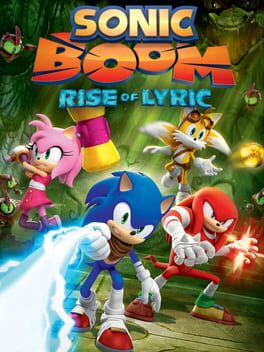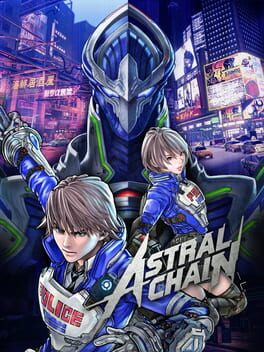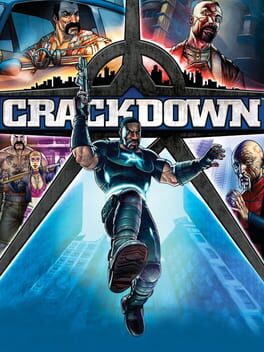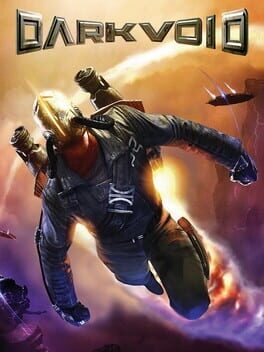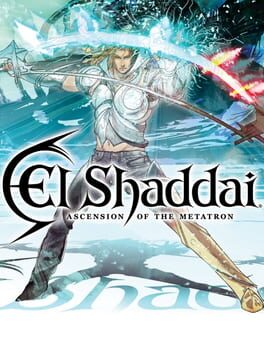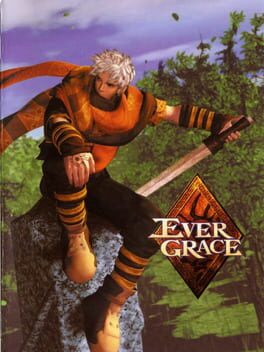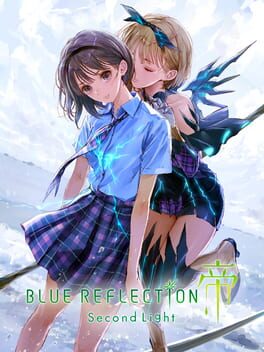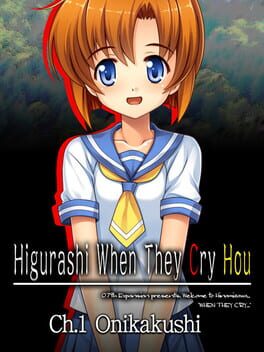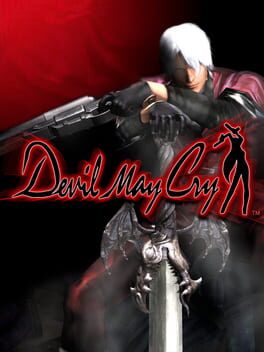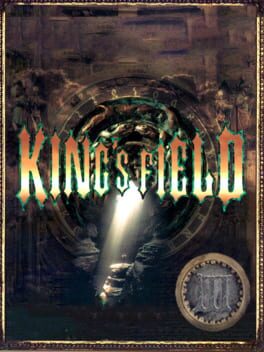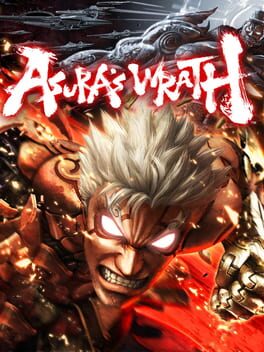666 Reviews liked by GirlNamedYou
While it's a tragedy that this ended up being the final game that I completed in 2022, it feels strangely apt to end on such a sour note. I don't mean to sound like a pessimist, but I'll admit I haven't been in the right headspace for quite a few years now. 2022 was no different, and while I continue to grow as a person and learn to appreciate the little things in life, I'm still dealing with personal traumas and my subpar mental health as I go. But, how exactly is this relevant to Sonic Boom?
Well, every year I think to myself, "This will be my year. Great things await." But nope, every year is the same as the last. Certain ambitions and expectations that are ultimately shattered by disappointment. And that's what Sonic Boom is, really, and with a title like that, it seems highly appropriate. Rather than it being the smashing success that the team probably hoped it would be, it was an explosive failure that somehow managed to make Sonic 06 look competent. In a way, it also parallels the tiny bit of shattered hope I had of 2022 being good.
The funny thing is that I don't really have any major complaints. But it's such an incredibly bland experience that it feels insulting to even play. When I set out to finish every Sonic game, I never expected the series to reach such banal levels of insipid game design, despite knowing full well of this game's infamy. This was a game I could tell was going to be horrible within the first 10 seconds of actual gameplay.
Imagine this: You are running on rails through some uninspired floating roadway as is typical of these games, but suddenly the framerate drops to 15 through some loop or some other janky transition, all while Sonic says any of these phrases and more:
"Built for speed!"
"This is what speed looks like!"
"Can't slow Sonic down!"
As I reference a Nintendo Life article, former Sega of America producer Stephen Frost gave a few reasons for the game's failure, "one of which is that based on focus tests, people were 'sick and tired' of Sonic going too fast and wanted to slow him down."
My guy, what the fuck are you talking about? Even if this was accurate, that doesn't mean literally dropping the framerate to achieve this. That's the power of CryEngine on Wii U, I guess. And no, I never expected this game to be anything more than somewhat mediocre, but truly, this is much worse than I could have imagined. At least the other bad Sonic games I've played were short enough and didn't subject you to 6 grueling hours of some piss poor excuse for entertainment.
So yeah, 2022 was not at all the year I hoped it would be, but there's always next year. To end on a more positive note, I have to admit that it was not all doom and gloom. There were actually a lot of great moments that happened this year, mostly involving time spent with family. As a coaster enthusiast, I was also able to get a lot of new credits. It's those small and joyful moments that make it worth pushing through life's harships. But anyway, here I am, with only a few minutes to go 'til the start of 2023, fireworks going off outside my window, finishing up this write-up. I am once again hoping 2023 will be my year, but even if it isn't, I can still look forward to the little things I'll certainly continue to enjoy out of life, and I can also find some solace in knowing that I won't ever have to touch this game ever again.
Well, every year I think to myself, "This will be my year. Great things await." But nope, every year is the same as the last. Certain ambitions and expectations that are ultimately shattered by disappointment. And that's what Sonic Boom is, really, and with a title like that, it seems highly appropriate. Rather than it being the smashing success that the team probably hoped it would be, it was an explosive failure that somehow managed to make Sonic 06 look competent. In a way, it also parallels the tiny bit of shattered hope I had of 2022 being good.
The funny thing is that I don't really have any major complaints. But it's such an incredibly bland experience that it feels insulting to even play. When I set out to finish every Sonic game, I never expected the series to reach such banal levels of insipid game design, despite knowing full well of this game's infamy. This was a game I could tell was going to be horrible within the first 10 seconds of actual gameplay.
Imagine this: You are running on rails through some uninspired floating roadway as is typical of these games, but suddenly the framerate drops to 15 through some loop or some other janky transition, all while Sonic says any of these phrases and more:
"Built for speed!"
"This is what speed looks like!"
"Can't slow Sonic down!"
As I reference a Nintendo Life article, former Sega of America producer Stephen Frost gave a few reasons for the game's failure, "one of which is that based on focus tests, people were 'sick and tired' of Sonic going too fast and wanted to slow him down."
My guy, what the fuck are you talking about? Even if this was accurate, that doesn't mean literally dropping the framerate to achieve this. That's the power of CryEngine on Wii U, I guess. And no, I never expected this game to be anything more than somewhat mediocre, but truly, this is much worse than I could have imagined. At least the other bad Sonic games I've played were short enough and didn't subject you to 6 grueling hours of some piss poor excuse for entertainment.
So yeah, 2022 was not at all the year I hoped it would be, but there's always next year. To end on a more positive note, I have to admit that it was not all doom and gloom. There were actually a lot of great moments that happened this year, mostly involving time spent with family. As a coaster enthusiast, I was also able to get a lot of new credits. It's those small and joyful moments that make it worth pushing through life's harships. But anyway, here I am, with only a few minutes to go 'til the start of 2023, fireworks going off outside my window, finishing up this write-up. I am once again hoping 2023 will be my year, but even if it isn't, I can still look forward to the little things I'll certainly continue to enjoy out of life, and I can also find some solace in knowing that I won't ever have to touch this game ever again.
Astral Chain
2019
Crackdown
2007
Dark Void
2010
Some enemies create a subconscious space to draw you into. If you suddenly feel faint, be on the alert. It's a sign your soul is under attack. Of course enemies that materialize before you are nothing but phantoms, but the suffering their attacks inflict on your body is real. You must [defeat them all to regain consciousness. ]
Lemme tell you a tale of Lucifer as a Wrangler-jeaned anime shojo with a Save Game flip-phone flipping around doing Devil May Cry (but God Certainly Will) combos that yield Christian frame advantage upon angels and demons from the Abrahamic pseudepigraphy. Exploiting movement tech to wavedash through portraits of the Archangel Gabriel built beautifully with 720p of the Lord's tears; stunlocking key figures from Aramaic and Ethiopian Orthodox Tewahedo scripture until they drop upgrade points: speedrunning an assault on the Kingdom of Heaven, a tower where the Authority and Metatron reign.
You can beat it in 7 hours... if you're good enough.
Lemme tell you a tale of Lucifer as a Wrangler-jeaned anime shojo with a Save Game flip-phone flipping around doing Devil May Cry (but God Certainly Will) combos that yield Christian frame advantage upon angels and demons from the Abrahamic pseudepigraphy. Exploiting movement tech to wavedash through portraits of the Archangel Gabriel built beautifully with 720p of the Lord's tears; stunlocking key figures from Aramaic and Ethiopian Orthodox Tewahedo scripture until they drop upgrade points: speedrunning an assault on the Kingdom of Heaven, a tower where the Authority and Metatron reign.
You can beat it in 7 hours... if you're good enough.
Evergrace
2000
this game is incredibly cruel and unkind to the player. it's full of stupid bullshit, cryptic bullshit, annoying bullshit, and the controls are weird to get used to, but damn if i didn't come out enjoying myself. the music is great, the story is pretty interesting, and the whole aesthetic just speaks to me. the ending credit roll cutscene goes stupid hard for some reason too, i think they intentionally transferred it to VHS and back just for the aesthetic like holy shit??? yo??? based???
good game/10 but you might hate it if you can't handle the garbage it throws at you
also play it in japanese if possible!! idk how well the english version holds up, but probably not very well given that it's published by agetec
good game/10 but you might hate it if you can't handle the garbage it throws at you
also play it in japanese if possible!! idk how well the english version holds up, but probably not very well given that it's published by agetec
Evergrace
2000
The thing about putting actual gay characters in your seemingly-yuribait game is that it's a very refreshing surprise, yes, but after that you've blown the whole lid off the premise. There's no more plausible deniability to building a luxurious bed and invited ten other girls to cuddle you in it, we all know that shit is gay now.
What I'm saying is Ao/Uta real. 5/5.
What I'm saying is Ao/Uta real. 5/5.
This review contains spoilers
I have a lot to say, sorry—this one’s been absolutely haunting me.
I think this game is best if you are 100% aware of what you're getting into before you play it. It's easy enough that it's basically a glorified visual novel, and since its story's focus is very much on the characters and very concerned with giving you plenty of time to get to know and love them, as well as the value of our ordinary, boring day-to-day lives, the game's pace is very leisurely, and is enjoyed best played slowly or at your own pace. In other words: if you're going into this expecting an action-packed JRPG, you're likely going to be disappointed. (There's a reason this took me 2 months and nearly 83 hours to finish one playthrough.)
That isn't to say the combat is bad, though. I actually found it really fun—it was just that the game doesn't let you play on a higher difficulty than Normal until NG+, and the Normal difficulty is so easy it becomes pretty much mindless by the second half of the game. However, on the chances I did get to really dive into the combat, I had a lot of fun with it—but I'm also just a sucker for JRPGs and real-time turn-based combat, apparently. I agree that it would've been nice if at least Hard difficulty were available from the start, so that more experienced players would be able to complete the side content and actually experience the game's combat without just melting through every enemy it threw at you. (Seriously, even the final boss was laughably unintimidating due to how effortlessly it went down...)
However, I don't think it's easiness is necessarily a bad thing, considering the fact that it is, again, basically a glorified visual novel. Given the already slow pace, I feel like I might've grown frustrated with it if I'd gotten stuck on a particularly hard boss or something and so couldn't progress the story, or at least not until I'd grinded 5 more levels or something. Having to do so may well have made the game less leisurely fun, and more of a drag far past its welcome, so I honestly think it's probably a good thing that it can be pretty brainlessly easy, so that you can easily move from one story beat to the next if that's all you want to do.
(Also, if you’re playing on PC—for the love of god use a controller. It’s not unbearable with keyboard and mouse, but it’s clunky and you can always feel it. It’s clearly made with a controller in mind, although the keyboard controls are fine, and not nearly as vexing as the original Blue Reflection’s.)
Also, as a brief aside, I think the fanservice is negligible and very easily ignored. It's certainly present, but barely noticeable—and that's only if you're actively looking for it. Although there are a few unavoidable skeevy things, like the absolute Camera Angles on Shiho's Reflector outfit, a couple scenes where they're bathing in swimsuits, and more Absolute Camera Angles in combat, particularly 1on1 battles. The game goes to painstaking lengths to prevent you from upskirting the girls as well, which is a breath of fresh air after the original Blue Reflection, wherein Hinako's skirt went flying if you bumped her a little too hard. Everything else, you basically have to actively seek out, or have a sharp eye on the lookout for the tiniest glimpse of. This is all to say: if you're worried about excessive fanservice ruining your experience, I wouldn't sweat it.
An edited-in additional aside: some people call this game yuribait. I would really have to disagree. You can interpret it as such, sure, and I can see how it'd be an easy conclusion to come to, considering it can be kind of hard to tell whether the "I love you"s exchanged between Ao and your girl of choice on dates are intended to be romantic or not... But considering also the canon and explicitly romantic relationship between two of the girls, I highly doubt this was something intended to be taken solely platonically. Second Light explores and heavily emphasizes the importance of love—of all kinds, platonic, familial, and romantic alike. That being said, this is absolutely a yuri game. The extent to which it'll be for you honestly kind of depends on how far you're willing to go for a particular girl, concerning T. LV and dates.
The soundtrack is obviously gorgeous, and I think combined with the breathtaking visuals, I can only describe this game's experience as captivating. There are certain moments I wish I could experience for the first time again. Namely, when you first enter Kokoro's Heartscape. I adore "peaceful post-apocalypse" visuals and environments, so it felt like this game was made for me. I fell in love the second I first saw that place. (And I feel like mentioning, I had no idea what I was in for. I literally just saw a screenshot of the game, thought it looked pretty, and downloaded it on a whim to see what kind of game it was. I feel like going into this as blind as can be really doubled the effect it had on me in this respect.)
I adored the surreal, beautiful yet eerie feeling of the OST, in combination with the dilapidated surroundings making it feel like somewhere lost to time, somewhere I wasn't supposed to be in—which felt very fitting for what is a manifestation of someone's forgotten, very personal memories. It feels like an intrusion, like we're not supposed to be seeing these private, personal moments, like unearthing something from a long time ago. The atmosphere of every Heartscape is absolutely incredible, and I often found myself slowing down or entirely to a halt just so I could wander them and stare in wonder. I think where the environment and OST 1-2-punch combo hit me hardest like this was in Rena, Uta, and Ao's Heartscapes.
And now I have to get a little personal, because how could I not, with a game like this?
Uta's story hit me like a freight train, personally. As soon as she was introduced properly, behaving completely differently having lost her memories, and hints being dropped that "something in her past" must've made her the way they remembered her, I knew I was in for a sucker punch. And, god, was I right.
I have amnesia, so I can't remember the majority of my life. According to my family, I underwent a complete personality change after the event that gave me it as well. So, naturally, I immediately had a soft spot for Uta. The implication that she turned out the way she did because of a traumatic event also immediately had me hooked onto her. I also just love characters like her, what can I say? I think girls should get to go batshit. You show me a gesugao character, I'm sold instantly.
I'll admit I got a little worried when they started talking about Uta's "old" and "new" self, but I really like where they ended up going with it. I'm glad to see the emphasis on the fact that these aren't two separate people—they're both Uta, and only together can they make up who she is today. It also resonates with me, considering that the person I was before my amnesia feels like an entirely different person, even though I know that's still "me."
Yuki also hit me particularly hard, as I'm also chronically ill, and saw myself in how she felt about hospitals and her condition in general, the spitefulness but insistence upon forced smiles and "good lies." The sterile atmosphere of the hospital along with the maze-like, identical rooms and hallways, and the quiet but never-quite-silence of a hospital in the ost, left such a strong impression. I love her to death, and I'm so, so glad she and Rena got to have an explicit, happy romance together. I can't tell you how happy it makes me to see real, genuine, romantic "I love you"s exchanged between girls, and not just endless "will they, won't they"s. (I adore Rena, too, by the way. She's everything to me.)
I guess this brings me to a point, that... I think Second Light does an excellent job of making its characters feel incredibly human. There's obviously an overly idealistic tinge to it—the girls are all best friends no matter what, even if they don't get along at first or occasionally, and the world needs to be saved with the power of friendship, after all—but it doesn't feel unrealistic. For the most part, all of the girls have extremely grounded, real issues, all of which I'd imagine many players can see themselves in.
The game spends a very long time simply establishing its cast and getting you accustomed to them, letting you get to know them and become their friends, grow attached to them along with Ao, without ever really letting you in on much of the plot. And I think this does it many favors—it does so very well, and you come to love every one of the girls, not just a select few you attach to as your favorites. I felt like the love Ao had for her friends, and the love I had for them, were one and the same. I wanted them to be happy so badly by the end, aha. I felt incredibly choked up in the final chapter, watching her fight so hard for a future for her loved ones that she knew she couldn't be a part of. In any other game, this may not fly so well, but I think it works here due to the game's heavy emphasis on the characters and their relationships to and love for each other.
I also think it handles the topic of memories, the loss of them, and the relationships those two things can have to your identity and life, and so on, very well. Which is always something I look out for with media involving amnesia—so often in fiction it's used as a fantastical plot device, to the point where some people don't even seem to realize it's a reality. (I've had people joke with me, "what are you, an anime protagonist now?" when I mention my amnesia, because their very first thought was that I must be joking, since that doesn't actually happen to real people, that only happens in fiction.) So it’s very refreshing to see it handled naturally, with a sincere consideration, even despite the fantastical circumstances.
This game has been haunting me ever since I first picked it up, and in the best way. It’s the kind of thing that stays on my mind for weeks afterwards, that I have dreams about and infects my inspirations for other works. I’m very, very glad I came upon it by complete random happenstance, and I got to experience it. Just, now I know I’m going to forever be seeking something to fill the hole in my heart this’ll leave for similar games… Now’s as good a time as ever to finish the first game, huh?
or, tl;dr: what if sayonara ponytail's discography was a game?
I think this game is best if you are 100% aware of what you're getting into before you play it. It's easy enough that it's basically a glorified visual novel, and since its story's focus is very much on the characters and very concerned with giving you plenty of time to get to know and love them, as well as the value of our ordinary, boring day-to-day lives, the game's pace is very leisurely, and is enjoyed best played slowly or at your own pace. In other words: if you're going into this expecting an action-packed JRPG, you're likely going to be disappointed. (There's a reason this took me 2 months and nearly 83 hours to finish one playthrough.)
That isn't to say the combat is bad, though. I actually found it really fun—it was just that the game doesn't let you play on a higher difficulty than Normal until NG+, and the Normal difficulty is so easy it becomes pretty much mindless by the second half of the game. However, on the chances I did get to really dive into the combat, I had a lot of fun with it—but I'm also just a sucker for JRPGs and real-time turn-based combat, apparently. I agree that it would've been nice if at least Hard difficulty were available from the start, so that more experienced players would be able to complete the side content and actually experience the game's combat without just melting through every enemy it threw at you. (Seriously, even the final boss was laughably unintimidating due to how effortlessly it went down...)
However, I don't think it's easiness is necessarily a bad thing, considering the fact that it is, again, basically a glorified visual novel. Given the already slow pace, I feel like I might've grown frustrated with it if I'd gotten stuck on a particularly hard boss or something and so couldn't progress the story, or at least not until I'd grinded 5 more levels or something. Having to do so may well have made the game less leisurely fun, and more of a drag far past its welcome, so I honestly think it's probably a good thing that it can be pretty brainlessly easy, so that you can easily move from one story beat to the next if that's all you want to do.
(Also, if you’re playing on PC—for the love of god use a controller. It’s not unbearable with keyboard and mouse, but it’s clunky and you can always feel it. It’s clearly made with a controller in mind, although the keyboard controls are fine, and not nearly as vexing as the original Blue Reflection’s.)
Also, as a brief aside, I think the fanservice is negligible and very easily ignored. It's certainly present, but barely noticeable—and that's only if you're actively looking for it. Although there are a few unavoidable skeevy things, like the absolute Camera Angles on Shiho's Reflector outfit, a couple scenes where they're bathing in swimsuits, and more Absolute Camera Angles in combat, particularly 1on1 battles. The game goes to painstaking lengths to prevent you from upskirting the girls as well, which is a breath of fresh air after the original Blue Reflection, wherein Hinako's skirt went flying if you bumped her a little too hard. Everything else, you basically have to actively seek out, or have a sharp eye on the lookout for the tiniest glimpse of. This is all to say: if you're worried about excessive fanservice ruining your experience, I wouldn't sweat it.
An edited-in additional aside: some people call this game yuribait. I would really have to disagree. You can interpret it as such, sure, and I can see how it'd be an easy conclusion to come to, considering it can be kind of hard to tell whether the "I love you"s exchanged between Ao and your girl of choice on dates are intended to be romantic or not... But considering also the canon and explicitly romantic relationship between two of the girls, I highly doubt this was something intended to be taken solely platonically. Second Light explores and heavily emphasizes the importance of love—of all kinds, platonic, familial, and romantic alike. That being said, this is absolutely a yuri game. The extent to which it'll be for you honestly kind of depends on how far you're willing to go for a particular girl, concerning T. LV and dates.
The soundtrack is obviously gorgeous, and I think combined with the breathtaking visuals, I can only describe this game's experience as captivating. There are certain moments I wish I could experience for the first time again. Namely, when you first enter Kokoro's Heartscape. I adore "peaceful post-apocalypse" visuals and environments, so it felt like this game was made for me. I fell in love the second I first saw that place. (And I feel like mentioning, I had no idea what I was in for. I literally just saw a screenshot of the game, thought it looked pretty, and downloaded it on a whim to see what kind of game it was. I feel like going into this as blind as can be really doubled the effect it had on me in this respect.)
I adored the surreal, beautiful yet eerie feeling of the OST, in combination with the dilapidated surroundings making it feel like somewhere lost to time, somewhere I wasn't supposed to be in—which felt very fitting for what is a manifestation of someone's forgotten, very personal memories. It feels like an intrusion, like we're not supposed to be seeing these private, personal moments, like unearthing something from a long time ago. The atmosphere of every Heartscape is absolutely incredible, and I often found myself slowing down or entirely to a halt just so I could wander them and stare in wonder. I think where the environment and OST 1-2-punch combo hit me hardest like this was in Rena, Uta, and Ao's Heartscapes.
And now I have to get a little personal, because how could I not, with a game like this?
Uta's story hit me like a freight train, personally. As soon as she was introduced properly, behaving completely differently having lost her memories, and hints being dropped that "something in her past" must've made her the way they remembered her, I knew I was in for a sucker punch. And, god, was I right.
I have amnesia, so I can't remember the majority of my life. According to my family, I underwent a complete personality change after the event that gave me it as well. So, naturally, I immediately had a soft spot for Uta. The implication that she turned out the way she did because of a traumatic event also immediately had me hooked onto her. I also just love characters like her, what can I say? I think girls should get to go batshit. You show me a gesugao character, I'm sold instantly.
I'll admit I got a little worried when they started talking about Uta's "old" and "new" self, but I really like where they ended up going with it. I'm glad to see the emphasis on the fact that these aren't two separate people—they're both Uta, and only together can they make up who she is today. It also resonates with me, considering that the person I was before my amnesia feels like an entirely different person, even though I know that's still "me."
Yuki also hit me particularly hard, as I'm also chronically ill, and saw myself in how she felt about hospitals and her condition in general, the spitefulness but insistence upon forced smiles and "good lies." The sterile atmosphere of the hospital along with the maze-like, identical rooms and hallways, and the quiet but never-quite-silence of a hospital in the ost, left such a strong impression. I love her to death, and I'm so, so glad she and Rena got to have an explicit, happy romance together. I can't tell you how happy it makes me to see real, genuine, romantic "I love you"s exchanged between girls, and not just endless "will they, won't they"s. (I adore Rena, too, by the way. She's everything to me.)
I guess this brings me to a point, that... I think Second Light does an excellent job of making its characters feel incredibly human. There's obviously an overly idealistic tinge to it—the girls are all best friends no matter what, even if they don't get along at first or occasionally, and the world needs to be saved with the power of friendship, after all—but it doesn't feel unrealistic. For the most part, all of the girls have extremely grounded, real issues, all of which I'd imagine many players can see themselves in.
The game spends a very long time simply establishing its cast and getting you accustomed to them, letting you get to know them and become their friends, grow attached to them along with Ao, without ever really letting you in on much of the plot. And I think this does it many favors—it does so very well, and you come to love every one of the girls, not just a select few you attach to as your favorites. I felt like the love Ao had for her friends, and the love I had for them, were one and the same. I wanted them to be happy so badly by the end, aha. I felt incredibly choked up in the final chapter, watching her fight so hard for a future for her loved ones that she knew she couldn't be a part of. In any other game, this may not fly so well, but I think it works here due to the game's heavy emphasis on the characters and their relationships to and love for each other.
I also think it handles the topic of memories, the loss of them, and the relationships those two things can have to your identity and life, and so on, very well. Which is always something I look out for with media involving amnesia—so often in fiction it's used as a fantastical plot device, to the point where some people don't even seem to realize it's a reality. (I've had people joke with me, "what are you, an anime protagonist now?" when I mention my amnesia, because their very first thought was that I must be joking, since that doesn't actually happen to real people, that only happens in fiction.) So it’s very refreshing to see it handled naturally, with a sincere consideration, even despite the fantastical circumstances.
This game has been haunting me ever since I first picked it up, and in the best way. It’s the kind of thing that stays on my mind for weeks afterwards, that I have dreams about and infects my inspirations for other works. I’m very, very glad I came upon it by complete random happenstance, and I got to experience it. Just, now I know I’m going to forever be seeking something to fill the hole in my heart this’ll leave for similar games… Now’s as good a time as ever to finish the first game, huh?
or, tl;dr: what if sayonara ponytail's discography was a game?
Gust has been great at queer representation in games, especially with the likes of Nights of Azure and Atelier. Blue Reflection Second Light continues that thread by having a factual lesbian couple in it that addresses them as such. Sure, a lot of Gust's queer rep could be considered more so pandering, but the way they handle this relationship is absolutely one of the best representations in gaming history. As well, the game never strays too far from giving your main character some romantic action, and cute character growths between them and the rest of the cast.
Second Light isn't all just cute shappics doing cute lesbian things tho; the game is a continuation of the Blue Reflection series and helps world build on the previous game and anime that came before it. I say this not to deter folks that haven't played the previous game or seen the anime, but merely to encourage further looks into the respect property as this game can absolutely be played as a standalone title. While I'm not exactly happy with collective amnesia as a main plot point (see Glory of Heracles); the way Second Light uses emotions and certain lore reveals helps impact the story far better than a simple "I forgot I was this". Second Light does an upstanding job of helping you relate and learn about their characters through dating activities and cutscenes, and the only real shame this game has is that you simply can't experience it all in one playthrough.
Blue Reflection Second Light also uses, and expands the battle system it had previously, but also cuts out some more challenging parts. While I wouldn't call regular battles themselves particularly challenging, the boss battles in the previous game were absolutely a wonderful mix of challenge and preparation management that sadly is lacking in the sequel. Instead what we get is an odd mix of focusing on a combo system, active timeline based combat, and occasionally 1 on 1 matches. The problem here, however, is that there is too much weight on holding your combo over knocking the enemy off your timeline to attack you. While it doesn't seem like a big problem at first, the further you go into the game, the more apparent it gets that having faster characters and reactions leads to bigger combos and therefore damage. This makes faster characters, and maximum button presses to be the overall focus over something more nuanced like causing super effective damage or knockback. This means that the majority of the time you're just using the same attacks over and over again without going into further tactics; this sucks because there are new mechanics that get underutilized because of it. One on One battles are largely absent from any challenge as further in the game you are just too stacked against enemies that you either beat them before a one on one fight can happen or bosses are already on the brink of death. As well, the super attacks that you acquire later on require a hefty 15 turn combo to be acquired, and sadly combat just doesn't last that long in regular battles or boss fights. There is clearly a lot of thought going into the combat system, but the game allows you to be busted to quickly to sadly make any real use of it, and due to the lack of the hefty boss battles we had in the previous game, there simply isn't any challenge to this game.
I'd be remissed if I didn't talk about more of the games good points, and I assure you that Second Light has a lot going on visually. From the way they present overworlds, to the imagery in each dungeon, and the way they present some of the games cutscenes. It really works well with it's dreams and memory elements that really help sell how this can be a person's mind, feelings, or desires. Add on the fact that this game has literally the best version of in game camera I have seen. The fact you can add certain characters or enemies, pose them in certain ways, move the camera in any way you want, and the many filters they have for you. Honestly, you can spend hours just making a bunch of fun scenarios with the camera that I just don't see in other games especially being as easy or having as many options as Second Light has. Plus the soundtrack for both Blue Reflection games has been absolutely stellar with it's way to present emotion and calm moments mixed together to form a soundtrack that just feels like something you listen to while trying to study for that big test tomorrow. Absolutely nothing in that soundtrack is a miss, and the way this game kinda just blends into the background for Second Light really help the overall atmosphere for the game.
Unique, I think is the best way I can describe the Blue Reflection series. The way it handles it's elements, characters, and lore are all fascinating and really make me wish more would come from this series. Second Light is certainly a step back when it comes to combat, but it absolutely nails everything else it has going for it. The story is wonderful, the soundtrack is relaxing, and the visuals have only gotten better. If you haven't played Second Light yet; please do, it's apart of a wonderful series that deserves more praise.
Second Light isn't all just cute shappics doing cute lesbian things tho; the game is a continuation of the Blue Reflection series and helps world build on the previous game and anime that came before it. I say this not to deter folks that haven't played the previous game or seen the anime, but merely to encourage further looks into the respect property as this game can absolutely be played as a standalone title. While I'm not exactly happy with collective amnesia as a main plot point (see Glory of Heracles); the way Second Light uses emotions and certain lore reveals helps impact the story far better than a simple "I forgot I was this". Second Light does an upstanding job of helping you relate and learn about their characters through dating activities and cutscenes, and the only real shame this game has is that you simply can't experience it all in one playthrough.
Blue Reflection Second Light also uses, and expands the battle system it had previously, but also cuts out some more challenging parts. While I wouldn't call regular battles themselves particularly challenging, the boss battles in the previous game were absolutely a wonderful mix of challenge and preparation management that sadly is lacking in the sequel. Instead what we get is an odd mix of focusing on a combo system, active timeline based combat, and occasionally 1 on 1 matches. The problem here, however, is that there is too much weight on holding your combo over knocking the enemy off your timeline to attack you. While it doesn't seem like a big problem at first, the further you go into the game, the more apparent it gets that having faster characters and reactions leads to bigger combos and therefore damage. This makes faster characters, and maximum button presses to be the overall focus over something more nuanced like causing super effective damage or knockback. This means that the majority of the time you're just using the same attacks over and over again without going into further tactics; this sucks because there are new mechanics that get underutilized because of it. One on One battles are largely absent from any challenge as further in the game you are just too stacked against enemies that you either beat them before a one on one fight can happen or bosses are already on the brink of death. As well, the super attacks that you acquire later on require a hefty 15 turn combo to be acquired, and sadly combat just doesn't last that long in regular battles or boss fights. There is clearly a lot of thought going into the combat system, but the game allows you to be busted to quickly to sadly make any real use of it, and due to the lack of the hefty boss battles we had in the previous game, there simply isn't any challenge to this game.
I'd be remissed if I didn't talk about more of the games good points, and I assure you that Second Light has a lot going on visually. From the way they present overworlds, to the imagery in each dungeon, and the way they present some of the games cutscenes. It really works well with it's dreams and memory elements that really help sell how this can be a person's mind, feelings, or desires. Add on the fact that this game has literally the best version of in game camera I have seen. The fact you can add certain characters or enemies, pose them in certain ways, move the camera in any way you want, and the many filters they have for you. Honestly, you can spend hours just making a bunch of fun scenarios with the camera that I just don't see in other games especially being as easy or having as many options as Second Light has. Plus the soundtrack for both Blue Reflection games has been absolutely stellar with it's way to present emotion and calm moments mixed together to form a soundtrack that just feels like something you listen to while trying to study for that big test tomorrow. Absolutely nothing in that soundtrack is a miss, and the way this game kinda just blends into the background for Second Light really help the overall atmosphere for the game.
Unique, I think is the best way I can describe the Blue Reflection series. The way it handles it's elements, characters, and lore are all fascinating and really make me wish more would come from this series. Second Light is certainly a step back when it comes to combat, but it absolutely nails everything else it has going for it. The story is wonderful, the soundtrack is relaxing, and the visuals have only gotten better. If you haven't played Second Light yet; please do, it's apart of a wonderful series that deserves more praise.
Really enjoyed this, especially the middle chunk where the suspense builds as you're constantly finding more pieces of the puzzle. Those skungy original sprites and the dated (positive connotation) photoshop filter photographic backgrounds are really charming too. Although I think I've had my fill with this one, can't say I'll be playing all 7 of the next chapters anytime soon tbh.
edit: i lied. couldn't stop thinking about it so i'm playing chapter 2 now
edit 2: finished all 8 chapters and some of the bonus content. one of the most exciting pieces of fiction I've been lucky enough to experience, a real rollercoaster
edit: i lied. couldn't stop thinking about it so i'm playing chapter 2 now
edit 2: finished all 8 chapters and some of the bonus content. one of the most exciting pieces of fiction I've been lucky enough to experience, a real rollercoaster
Devil May Cry
2001
DMC1 rips it's so clunky and weird, you can really feel them breaking into a new genre and also all these weird vestiges of resident evil. It's not what it's going to be but it's cool how well-formed it all is, like the game feels great to play and it feels great to get good at it. The checkpoint system is the worst thing I've ever experienced in my entire life but I love the game a lot, real good
King's Field II
1996
Convoluted NPC questlines, a huge open world, an understated but verbose backstory told through environmental cues and text dumps, and secrets that reveal themselves to you like layers on a video game onion, or at least ones you make note of for the next time you decide to take a bite through the tears. Sorry, but you were late to the party the second you passed up the spark that kicked off perhaps the most earth-shatteringly loud three consecutive days in gaming history:
June 21, 1996: King’s Field III,
June 22, 1996: Quake,
June 23, 1996: Super Mario 64.
Simultaneously a key collection simulator more nightmarishly hellish than any Doom WAD could ever aspire to be, a Soulslike more hideously obtuse than any happy-go-lucky Onion-in-armor could ever prove to you, and an aural assassin as insidiously persistent as the drippiest faucet; King’s Field II (US), hereafter referred to simply as King’s Field III is definitively the worst “exploration/action game with a deep backstory” that I still somewhat enjoyed playing. In contrast, I did not enjoy my time with Demons’ Souls, nor did I enjoy the second time; but I would hazard a guess and say I would somewhat further enjoy a second playthrough of Kings Field III. As a child sizing up which variety of cough syrup to gulp down to appease a mother resolved to declare me “too sick to play videogames”, I found myself reaching out to garish Bubble Gum instead of the grizzled statesman that was Robitussin when given the choice. Bubble Gum as a medicinal flavor just had an air of mystery to it, and while I don’t think anything purporting itself to taste like Bubble Gum while simultaneously being good for you ever accomplished either with aplomb, it’s the attempt at not sucking that would stick with me and embolden me to return the next time I told mother the can of beef mushroom soup I emptied out into the toilet bowl came out of my body. All this to say that for all the trauma King’s Field III would inflict on my soul, it challenged and surprised me more than the solved quantity of Demons’ Souls ever possibly could; the most comprehensive resource for Kings Field III at the time of this review is a half-working neocities archive of a now kaput fansite, whereas Demons’ Souls has been documented and analyzed to death, most famously by Sony who commissioned one of their own studios to assemble a multi-million dollar diorama of it for it’s winning entry at the science fair titled: Most Exploitable Fanbase. King’s Field III is the first time developer FromSoft united nearly all of these now familiar trappings of success in one compact disc; a bouillabaisse of then unconventional game design that every YouTuber who wore their choice of game difficulty as a personality would yearn for on as close to a yearly basis as they could get it. (NOTE: I did not originally intend to insinuate that Demons’ Souls fans are “tripping” but it would explain A LOT.)
Unfortunately for all it’s ambition it never really executes it’s MO of being a groundbreaking console open-world RPG, and FromSoft probably didn’t originally aspire to such grandiose status either. If King’s Field II was the rebirth of mechanics established in the previous game as Dark Souls would be to Demons’, King's Field III like Dark Souls II sought to prioritize expansion of the game’s world and mythos over massive rehauls to an already proven formula. Say what you will about Dark Souls 2, (I will: IT’S GREAT), it’s varied landscapes complemented by a thoughtful approach to emulating the passage of time/distance with environmental setpieces once relegated to conceptual art cement it as a grand adventure across an entire country befitting of the status of sequel. Tragically however, King’s Field III is ugly. Like, hairy butt ugly. Grand its world may be on paper, 1996’s open world is largely made up of slabs of vomit lined with trees leading to caves lined with vomit wallpaper like some sort of nightmarish creepypasta Animal Crossing village. The framerate does not scale upwards with the amount of butt-ugliness on display either, choosing to run lower almost as if in an act of defiance. “Mind-boggling graphics” indeed. As the fucked up kid who’d peer out upon a foggy day and think Superman 64 before Silent Hill, this game would have rocked my world by wiping the slate clean of either from the foggy games discourse - ushering in an age of King Fieldlian faux pas amid stifled giggles from the gamers in the crowd. This all sits opposed to the labyrinthian approach to level design FromSoft embraces in King’s Field III, resulting in exploration that ends up feeling monotonous and soul crushing at times as the player is sparsely provided with landmarks to anchor their compass at. To their credit, FromSoft did provide an item that automatically maps out the layout of their maze-like playgrounds, as well as provide an in-game log of NPCs spoken to and their dialogues: both quality of life improvements the Souls series would do well not to shy away from. These elevate 1996’s “Hammerfell at Home” to tolerable status, and I’d dare say they would have enhanced the experience of FromSoft’s later games as well, with Elden Ring the first to begin to shed busywork and obfuscation for obfuscation’s sake as what it really is: a waste of time.
June 21, 1996: King’s Field III,
June 22, 1996: Quake,
June 23, 1996: Super Mario 64.
Simultaneously a key collection simulator more nightmarishly hellish than any Doom WAD could ever aspire to be, a Soulslike more hideously obtuse than any happy-go-lucky Onion-in-armor could ever prove to you, and an aural assassin as insidiously persistent as the drippiest faucet; King’s Field II (US), hereafter referred to simply as King’s Field III is definitively the worst “exploration/action game with a deep backstory” that I still somewhat enjoyed playing. In contrast, I did not enjoy my time with Demons’ Souls, nor did I enjoy the second time; but I would hazard a guess and say I would somewhat further enjoy a second playthrough of Kings Field III. As a child sizing up which variety of cough syrup to gulp down to appease a mother resolved to declare me “too sick to play videogames”, I found myself reaching out to garish Bubble Gum instead of the grizzled statesman that was Robitussin when given the choice. Bubble Gum as a medicinal flavor just had an air of mystery to it, and while I don’t think anything purporting itself to taste like Bubble Gum while simultaneously being good for you ever accomplished either with aplomb, it’s the attempt at not sucking that would stick with me and embolden me to return the next time I told mother the can of beef mushroom soup I emptied out into the toilet bowl came out of my body. All this to say that for all the trauma King’s Field III would inflict on my soul, it challenged and surprised me more than the solved quantity of Demons’ Souls ever possibly could; the most comprehensive resource for Kings Field III at the time of this review is a half-working neocities archive of a now kaput fansite, whereas Demons’ Souls has been documented and analyzed to death, most famously by Sony who commissioned one of their own studios to assemble a multi-million dollar diorama of it for it’s winning entry at the science fair titled: Most Exploitable Fanbase. King’s Field III is the first time developer FromSoft united nearly all of these now familiar trappings of success in one compact disc; a bouillabaisse of then unconventional game design that every YouTuber who wore their choice of game difficulty as a personality would yearn for on as close to a yearly basis as they could get it. (NOTE: I did not originally intend to insinuate that Demons’ Souls fans are “tripping” but it would explain A LOT.)
Unfortunately for all it’s ambition it never really executes it’s MO of being a groundbreaking console open-world RPG, and FromSoft probably didn’t originally aspire to such grandiose status either. If King’s Field II was the rebirth of mechanics established in the previous game as Dark Souls would be to Demons’, King's Field III like Dark Souls II sought to prioritize expansion of the game’s world and mythos over massive rehauls to an already proven formula. Say what you will about Dark Souls 2, (I will: IT’S GREAT), it’s varied landscapes complemented by a thoughtful approach to emulating the passage of time/distance with environmental setpieces once relegated to conceptual art cement it as a grand adventure across an entire country befitting of the status of sequel. Tragically however, King’s Field III is ugly. Like, hairy butt ugly. Grand its world may be on paper, 1996’s open world is largely made up of slabs of vomit lined with trees leading to caves lined with vomit wallpaper like some sort of nightmarish creepypasta Animal Crossing village. The framerate does not scale upwards with the amount of butt-ugliness on display either, choosing to run lower almost as if in an act of defiance. “Mind-boggling graphics” indeed. As the fucked up kid who’d peer out upon a foggy day and think Superman 64 before Silent Hill, this game would have rocked my world by wiping the slate clean of either from the foggy games discourse - ushering in an age of King Fieldlian faux pas amid stifled giggles from the gamers in the crowd. This all sits opposed to the labyrinthian approach to level design FromSoft embraces in King’s Field III, resulting in exploration that ends up feeling monotonous and soul crushing at times as the player is sparsely provided with landmarks to anchor their compass at. To their credit, FromSoft did provide an item that automatically maps out the layout of their maze-like playgrounds, as well as provide an in-game log of NPCs spoken to and their dialogues: both quality of life improvements the Souls series would do well not to shy away from. These elevate 1996’s “Hammerfell at Home” to tolerable status, and I’d dare say they would have enhanced the experience of FromSoft’s later games as well, with Elden Ring the first to begin to shed busywork and obfuscation for obfuscation’s sake as what it really is: a waste of time.
Asura's Wrath
2012
It's honestly fucking wild how hard I ended up falling in love with this game and what it was doing by the end when in the beginning it genuinely wasn't doing too much for me.
The over the top battle shounen vibes, which can work for me on occasion (Jujutsu Kaisen, recently got into Hunter x Hunter), don't generally hit for me. The story wasn't doing much for me, more man pain save the daughter god killing wasn't doing a ton for me.
But there's a point in this game where it finally just all clicked correctly into place. The way the game uses QTE's to better cement you within Asura's perspective. Every weighty punch and fluid blow landed or received absolutely felt by how much you hammer on those fuckin buttons.
The gusto and fucking aspirations towards making this shounen power trip about the angriest motherfucker alive doing his best to protect those he cares for. It just fuckin clicks. The setpieces get better and better. The QTE's become more personal and hard hitting. I was rooting for Asura and doing my best to help him. I wanted to get my synchronicity rating as perfect as I could because I felt the weight of every missed QTE.
It's corny to say but genuinely this game makes you FEEL like you are Asura. It makes you feel like you are throwing those punches, crunching your own hands to dust by mashing the fuck out of that circle button. And the intense varied ways a person can punch a dude are represented perfectly with the wonderfully expressive and beautiful art direction and animation. This is absolutely one of the better looking games of that gen while also being one of the better showcases I've seen of Unreal 3 on consoles. It looks fuckin excellent. The watercolor palette, the shimmer, the wonderful reds, greys and harsh black lines. It evokes every inch of its inspirations and then some.
The final boss (within the DLC) is genuinely one of the greatest uses of QTE's I think I've ever seen in my life. I'll go more into that in the review of the DLC specifically but holy fuck it's wild as hell.
I think what finally brought it into focus for me was thinking of it less as a character action game, because honestly while the combat is serviceable it's more a bridge to the setpieces than actually all that great, and more as a evolution of games like Dragon's Lair, Space Ace and Time Gal.
Once I looked at it more in that light, played much more aggressively with the combat and let the game take me onto it's wild ride it completely fucking hooked me. Some of the sequences, shots, compositions absolutely deserve to be immortalized in some fashion.
It couldn't really work the same at all within any other medium. While described as "interactive anime" I would say it's trying to pave its own footprint into cinematic gaming as a whole and changing the players relationship to QTE's themselves. It does its best to make you apart of the spectacle and it realized it's lofty ambitions with absolutely flying colors.
Asura's Wrath made me appreciate how systems we can take for granted as fairly basic in principle can be used to great effect when given more attention and focus and when working within the framework/narrative presented. MGR does similar but it don't hit in the same way this does with them. It's just so excellent.
I really gotta play more Cyberconnect2 games.
The over the top battle shounen vibes, which can work for me on occasion (Jujutsu Kaisen, recently got into Hunter x Hunter), don't generally hit for me. The story wasn't doing much for me, more man pain save the daughter god killing wasn't doing a ton for me.
But there's a point in this game where it finally just all clicked correctly into place. The way the game uses QTE's to better cement you within Asura's perspective. Every weighty punch and fluid blow landed or received absolutely felt by how much you hammer on those fuckin buttons.
The gusto and fucking aspirations towards making this shounen power trip about the angriest motherfucker alive doing his best to protect those he cares for. It just fuckin clicks. The setpieces get better and better. The QTE's become more personal and hard hitting. I was rooting for Asura and doing my best to help him. I wanted to get my synchronicity rating as perfect as I could because I felt the weight of every missed QTE.
It's corny to say but genuinely this game makes you FEEL like you are Asura. It makes you feel like you are throwing those punches, crunching your own hands to dust by mashing the fuck out of that circle button. And the intense varied ways a person can punch a dude are represented perfectly with the wonderfully expressive and beautiful art direction and animation. This is absolutely one of the better looking games of that gen while also being one of the better showcases I've seen of Unreal 3 on consoles. It looks fuckin excellent. The watercolor palette, the shimmer, the wonderful reds, greys and harsh black lines. It evokes every inch of its inspirations and then some.
The final boss (within the DLC) is genuinely one of the greatest uses of QTE's I think I've ever seen in my life. I'll go more into that in the review of the DLC specifically but holy fuck it's wild as hell.
I think what finally brought it into focus for me was thinking of it less as a character action game, because honestly while the combat is serviceable it's more a bridge to the setpieces than actually all that great, and more as a evolution of games like Dragon's Lair, Space Ace and Time Gal.
Once I looked at it more in that light, played much more aggressively with the combat and let the game take me onto it's wild ride it completely fucking hooked me. Some of the sequences, shots, compositions absolutely deserve to be immortalized in some fashion.
It couldn't really work the same at all within any other medium. While described as "interactive anime" I would say it's trying to pave its own footprint into cinematic gaming as a whole and changing the players relationship to QTE's themselves. It does its best to make you apart of the spectacle and it realized it's lofty ambitions with absolutely flying colors.
Asura's Wrath made me appreciate how systems we can take for granted as fairly basic in principle can be used to great effect when given more attention and focus and when working within the framework/narrative presented. MGR does similar but it don't hit in the same way this does with them. It's just so excellent.
I really gotta play more Cyberconnect2 games.
